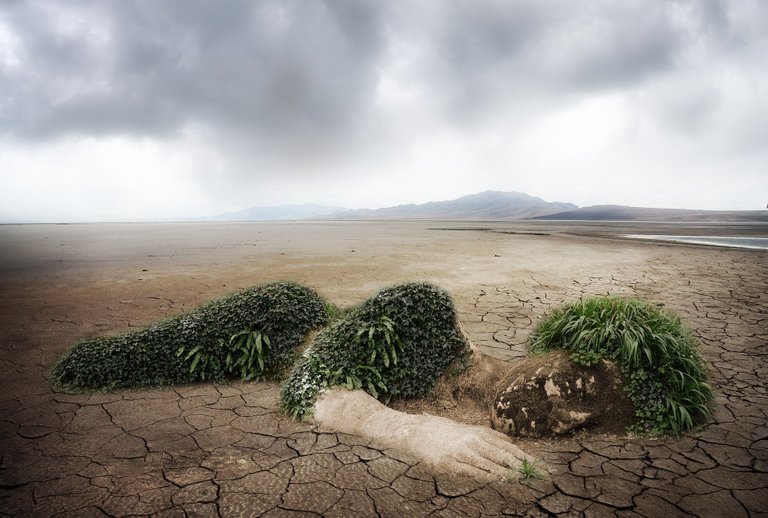Climate Change Mitigation Strategies and the Complexities of Environmental Sustainability
In our contemporary world, we find ourselves in a position of unprecedented power, innovation, and wealth. Yet, amidst all our achievements, there is a shadow that looms over us - the specter of climate change. It is a topic that saturates our news stations, fills the pages of magazines, and serves as the focal point of countless seminars and meetings. Despite our apparent concern, it seems we have been unable to translate this anxiety into meaningful action.
On the surface, climate change might seem like a straightforward issue, talking about greenhouse receiving energy from the sun, and distributing it to the atmosphere, which can lead to changes in climate such are dry regions becoming drier and wet regions becoming wetter. Coastal cities grapple with rising oceans, a stark reminder of the crisis at hand. So, why have we not been able to address climate change effectively, given our advanced capabilities?
When we are looking at solutions for climate change, we look at certain few key features such as coal plants, cows, and how to make cow meat disappear because of its contribution to greenhouse gasses, so the solutions are as simple as creating solar panels to replace coal, biking to work and so importing EV bikes as well as using EV cars, as well eating plant-based meat. In all, it has to do with changing your lifestyle to prevent climate change, but are those the solution?
It is undeniable that our path of industrialization and the development of our modern world have exacted a toll on our planet. Virtually everything we do to enhance our comfort contributes to environmental degradation. While we scrutinize the obvious pollutants that impact our environment, we often overlook others with significant consequences. Consider the vast landfills scattered across many nations, emitting substantial amounts of the potent greenhouse gas methane. Astonishingly, landfill emissions account for a staggering 43% of measured methane emissions, a fact rarely emphasized. Similarly, household emissions, often overshadowed by the spotlight on vehicle emissions, play a substantial role in the climate equation.

publicdomainpictures.net
To also put in a better concept, the emission produced when creating a car is equivalent to that produced when building two meters of road. So while EV is a good one, we also need to consider that the current way we build Asphalt roads is still the same. While there is attention on just one part of the system, there are different parts that need fixing, in other to get the required result. So we also need to understand that when tackling climate change, there isn't black and white, there are grey areas that make fighting it utterly difficult
We cannot deny the fact that the prosperity of so many nations depends on carbon emissions to build the prosperity of their nation, and a lot of countries are only trying to cut back on carbon emissions, they are not tackling parts that would affect their nations' prosperity. This is also the same with low and middle-income countries that are trying to achieve financial stability and a better lifestyle for their nations. In our current world, asking growing nations to cut down on gas emissions is similar to asking them not to grow, so this is difficult. We can see that it is a grey area for a lot of people and nations.

adaptation-undp.org
Consider another gray area, Aliko Dangote, Africa's wealthiest individual, amasses his fortune through cement production, a sector responsible for 8% of global CO2 emissions. Yet, cement remains the most affordable means for developing countries to construct homes, offices, and infrastructure. As we strive to combat global warming and address climate change, we find ourselves in a constant quest to replace established practices with more sustainable alternatives.
The food industry offers another example of this complexity. Agriculture contributes significantly to greenhouse gas emissions, but can we simply stop eating and emitting these gases, even if it means jeopardizing our survival? We are tasked with feeding a global population of billions while minimizing emissions. Currently, around 40% of the world's land is used for meat production, a sector known for its substantial carbon footprint. Meanwhile, rice cultivation contributes 1.3% of global methane emissions, and a staggering 57% of all emissions stem from animal-based foods.
There are a lot of innovations that have contributed to climate change, and if we say we should stop using them, then we have to consider that at a point in time in 2020, the world was shut down, and global emissions only went down by 7% so what can we really do to tackle climate change?
Addressing climate change is not a matter of simple solutions, but a complex and multifaceted endeavor. Our world is painted in shades of gray, with interconnected issues even as science is improving on innovations. More needs to be done when it comes to climate change, and greenhouse gases by all.
- https://www.sciencedirect.com/science/article/pii/S0959652617317316
- https://www.ncbi.nlm.nih.gov/pmc/articles/PMC4809014/
- https://www.carbonbrief.org/guest-post-a-new-way-to-assess-global-warming-potential-of-short-lived-pollutants/
- https://www.envirotech-online.com/news/air-monitoring/6/breaking-news/concrete-is-responsible-for-8-percent-of-co2-emissions/48038
- https://www.iea.org/energy-system/industry/cement
- https://ourworldindata.org/emissions-by-sector#sector-by-sector-where-do-global-greenhouse-gas-emissions-come-from
- https://www.researchgate.net/publication/332492697
- https://www.iea.org/data-and-statistics/charts/comparative-life-cycle-greenhouse-gas-emissions-of-a-mid-size-bev-and-ice-vehicle
- https://essd.copernicus.org/articles/10/195/2018/essd-10-195-2018.pdf
- https://ourworldindata.org/food-ghg-emissions

Thanks for your contribution to the STEMsocial community. Feel free to join us on discord to get to know the rest of us!
Please consider delegating to the @stemsocial account (85% of the curation rewards are returned).
Thanks for including @stemsocial as a beneficiary, which gives you stronger support.
Climate change aside natural events,has been strong propelled by anthropocentric effect. People are not much aware of their actions that causes climate change.